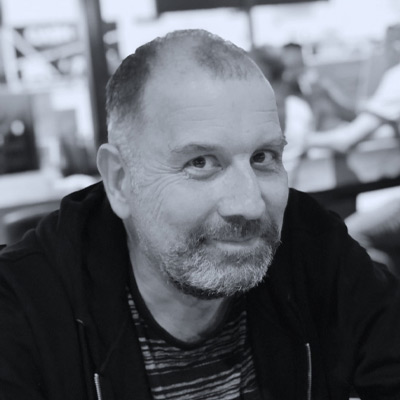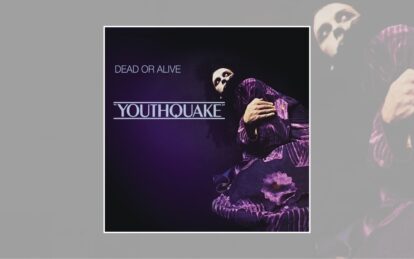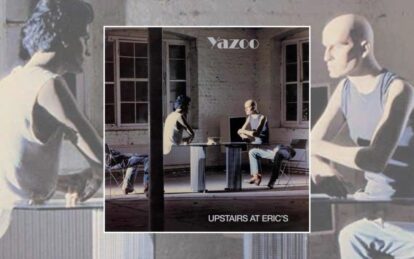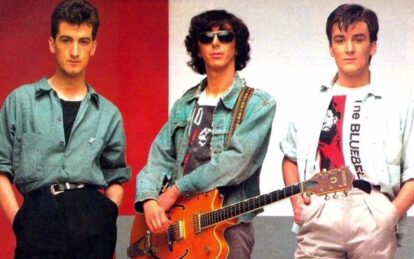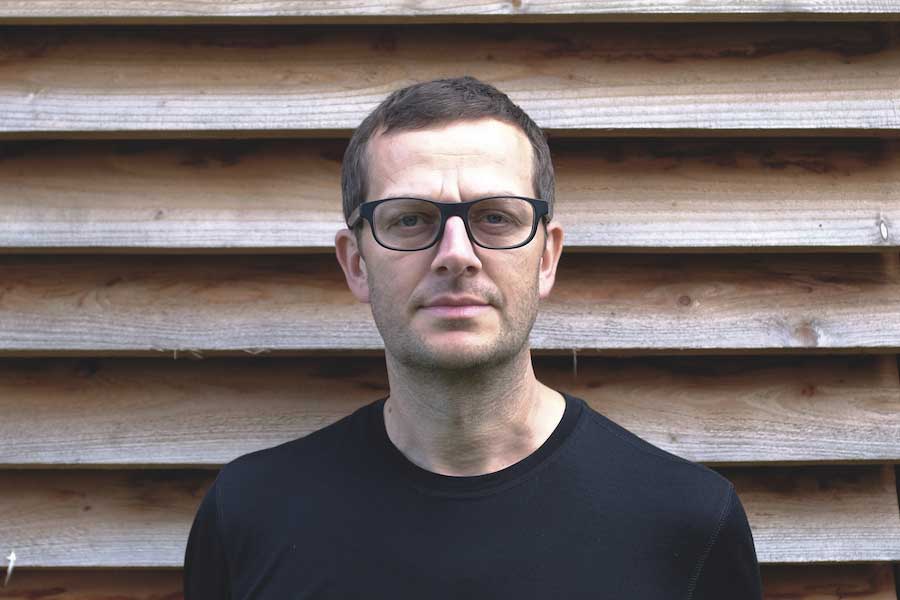
Producer Ben Hillier has overseen albums by an extraordinary range of artists including Elbow, Blur, Nadine Shah and no less than three by Depeche Mode. Here he tells Classic Pop how tensions in the studio – and even a band member leaving – can help the creative process… By Andy Jones
After completing the prestigious Tonmeister course at Surrey University – one that has delivered many a top record producer – Ben Hillier landed a job with the production duo of Paul Oakenfold and Steve Osborne.
With them, he soon learned the arts of engineering and remixing and spent the rest of the 90s working with the greats of the production world (think Flood, Stephen Street, Alan Moulder among many others) before being promoted to the role of producer on Elbow’s debut album…
“My first proper album was Asleep In The Back,” he says. “It was a little weird as Steve had already produced the album with Elbow when they were with EMI, but the record company didn’t release it and eventually dropped the band.
“Then Elbow were picked up by V2 and had to make the record again, but by this point they’d moved on and wanted to do something different so only half the songs that were on the original were on the new version.”
Ben helped the band re-record some songs and produced the rest of the tracks with critically-acclaimed results, and even though it would be some years before the band broke through on a major scale, Ben could tell they eventually would.
“They always had the ambition and the talent,” he says. “They’re such a lovely bunch and I really enjoyed making that record with them, I’m really proud of it. It’s more left-field than their newer stuff but it’s still great.”
As his career progressed Ben embraced more varied and challenging projects, one potentially awkward one being Blur’s Think Tank as the band’s Graham Coxon left during the process. “They didn’t have a guitarist which made it interesting,” he says.
“Damon [Albarn] then played most of the guitar, Alex [James] played a little bit and it was extremely creative and really good fun even though they were a band in crisis. Graham is a really good mate of mine and I’ve done four solo records with him so it was a strange experience in that sense, but it meant that Damon was really up for trying loads of stuff.
“I was there as they wrote the songs and we sort of drew it all together. All of the recordings pretty much ended up on the record and we didn’t go back and re-record anything as that was the kind of feel we wanted – sort of scratchy and thrown together.”
Recording Mode
Of all the artists that Ben has worked with, Depeche Mode must be a huge highlight. This is a band who often changed their producers album by album so Ben must be proud to have been asked to come back to produce a hat-trick of recordings: Playing The Angel, Sounds Of The Universe and Delta Machine.
“I love working with Depeche,” he confirms. “I really do, and they are very, very good. That’s the reason they’ve been going so long: they are astonishingly good at what they do. I think Daniel Miller initially introduced us and suggested me as a producer.
“They’d done the previous album, Exciter, with Mark Bell who was awesome but I think they wanted to move away from the more techie approach with lots of laptops which is what Mark did well. So I had a meeting with them and we just got on really well so they were like ‘right let’s do it!’.”
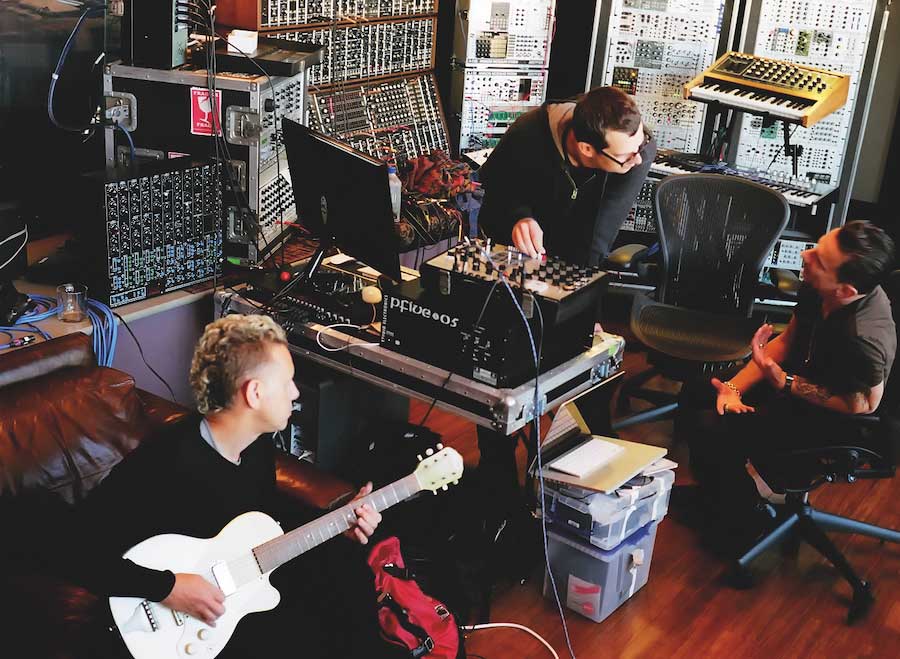
Ben Hillier in the studio with Depeche Mode’s Martin Gore and Dave Gahan
“They are quite a tricky band to record because of their setup,” Ben continues. “You kind of have to build a studio for them because most studios are set up to record acoustic or live instruments and the control rooms are quite small whereas they all need to be in the control room all the time.
“So on all the records I did with them we built a control room in the larger live room of the studio we were working in so we could have all the synths and everything set up in the one place.
“They are very able and their ideas of demos are fully recorded and realised songs,” he adds. “It’s amazing but it doesn’t leave you a lot of space to move stuff around, so if you want to change the direction of a song you have to completely pull it apart and rebuild it.
“It’s quite frustrating as you start off with this demo that sounds amazing and then when you pull it apart it inevitably sounds worse until you build it up again.
“The more I worked with them, the more that Martin [Gore] especially would trust me and bear in mind that we would probably want to rebuild the songs so would leave some space for me to do that, which was great.”
Which of the three Depeche albums does Ben remain most proud of?
“I really enjoyed Delta Machine, that felt really great,” he replies. “Martin and I were working with each other better than before and Martin and Dave [Gahan] were in a great space personally.
“Every time we would start a song I was getting Dave to do a whole new set of vocal takes and work on other stuff and that drove him mad by the end of it, but I’m really proud of the vocals on that record and I hope that Dave is, too.
“They were realised to a level that I don’t think we achieved on the first two records, not that they were bad in any way, it’s just that Dave is such a great singer that I just wanted to get the best possible performance that I could.”
There are, of course, well-documented tensions between Gore and Gahan on recent albums over how many of each’s songs are used. Did Ben see any of these tensions surface?
“There was nothing horrible,” he recalls. “It definitely came into the studio and it’s something that I could see, and with all the experience of working with so many bands I knew that it was something that I would have to confront head on.
“You don’t want to leave something like that to fester, you have to talk about it, which I was quite happy to do with both of them.
“I’m very much an album producer and always much happier when I can get my teeth into a collection of songs and find that they suit each other really well so you are building a representation of a band’s musical landscape. From my point of view it is all about the album.”
Want more from Classic Pop magazine? Get a free digital issue when you sign up to our newsletter!
Classic Pop may earn commission from the links on this page, but we only feature products we think you will enjoy.

